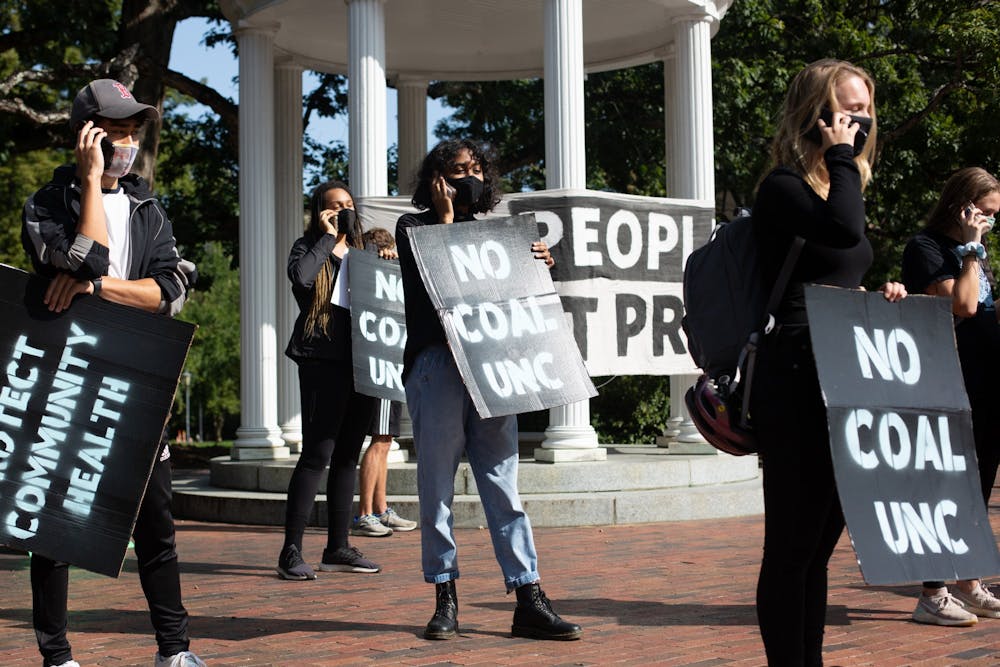A judge denied the University’s motion to dismiss nine out of 10 allegations that the campus’s coal plant violated the Clean Air Act, according to the Center for Biological Diversity, one of the plaintiffs in the lawsuit.
The court refused to dismiss claims numbered two through 10, which allege UNC had air-permit violations regarding pollution control, pollution monitoring and noncompliance reporting requirements, the center said in a press release.
The judge has yet to rule on UNC's motion to dismiss the first claim in the suit — which is that UNC burned more coal than its permit allows, Robert Ukeiley, a senior attorney in the center’s environmental health program, said.
The Center for Biological Diversity filed the suit, along with the Sierra Club, against the University. The plaintiffs said UNC's coal plant, known as the Cogeneration Facility, was burning too much coal and that the University was not properly monitoring it. Despite the motion to dismiss being denied this month, the University said it will continue its fight in the suit.
Ukeiley said the denial, handed down by a federal district court judge Oct. 9, means the case will now take one of two paths. He said one potential path for the case is reaching a settlement through mediation, which might only take a couple of months. The other path is for the judge to decide the case, which could take much longer.
An analysis by the center found that under its state permit, the University’s power plant can contribute to levels of harmful nitrogen oxide and sulfur dioxide of four to six times greater an amount than allowed under the U.S. Clean Air Act. Former Vice Chancellor for Finance and Operations Jonathan Pruitt denied this allegation in a letter to staff attorney Perrin de Jong at the center.
Pruitt responded to the plaintiffs’ notice of intent to file in this letter to de Jong, which he sent in November 2019. Pruitt said although the University shares the goal of reducing carbon emissions, it strongly disagrees that there were repeated violations.
Pruitt said in the letter that though violations of the University’s permit may have occurred, they do not support the public allegations the plaintiffs made.
“The University has supplied voluminous information and data to both the Division of Air Quality and the plaintiffs and looks forward to presenting this information as part of its ongoing defense against this lawsuit,” UNC Media Relations said Wednesday in a statement to The Daily Tar Heel.




